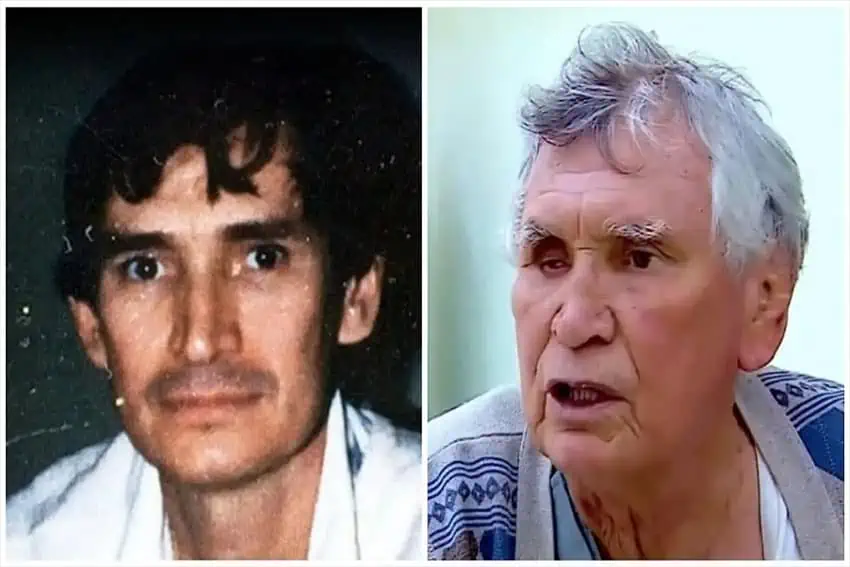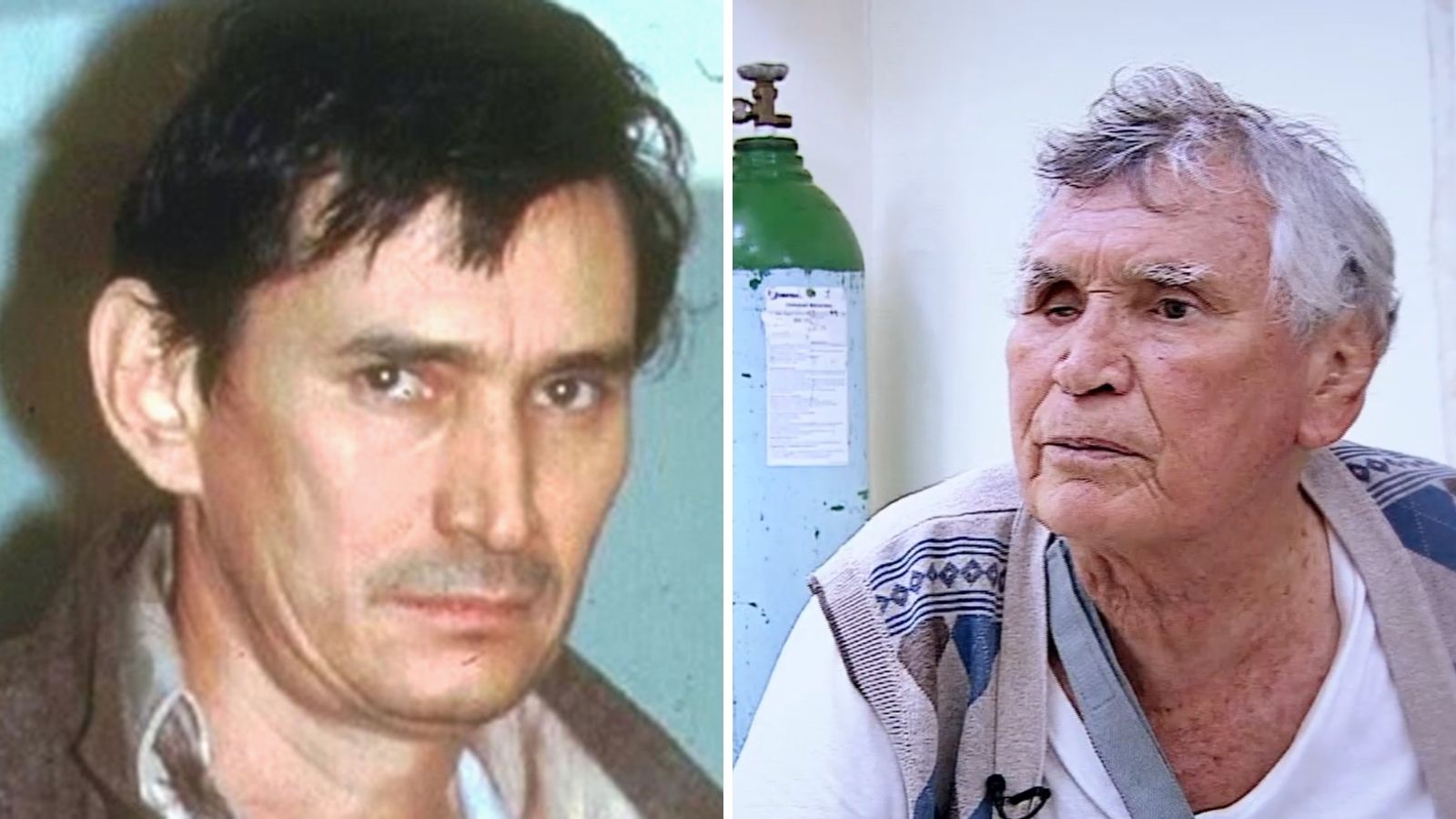Is it possible to become a legend in the shadows, a figure whose influence transcends the tangible? Miguel ngel Flix Gallardo, the man known as "El Padrino," or "The Godfather," achieved precisely that, carving an indelible mark on the history of Mexico's drug trade, a legacy that continues to fascinate and repulse in equal measure.
The name Miguel ngel Flix Gallardo resonates with a particular infamy, a testament to his power and the brutal efficiency with which he shaped the modern Mexican drug trade. His story, now immortalized on screen, unveils a world of clandestine operations, illicit wealth, and the relentless pursuit of dominance. From humble beginnings, Gallardo orchestrated a vast network of drug trafficking, earning him the moniker "El Jefe de Jefes," the boss of bosses.
| Category | Details |
|---|---|
| Full Name | Miguel ngel Flix Gallardo |
| Also Known As | El Padrino (The Godfather), El Jefe de Jefes (The Boss of Bosses) |
| Birthdate & Place | Information not publicly available due to privacy reasons |
| Nationality | Mexican |
| Known For | Founding the Guadalajara Cartel; Establishing the modern Mexican drug trade. |
| Net Worth (Estimated) | $1 Billion (at the time of his peak) |
| Criminal Charges | Multiple offenses, including drug trafficking, racketeering, and the murder of DEA Agent Kiki Camarena. |
| Current Status | Incarcerated, currently under house arrest. |
| Spouse | Mara Elvira Murillo (second wife) |
| Children | Abril Flix Murillo, Miguel Flix Murillo Jr. (Confirmed) |
| Depicted In | Netflix series "Narcos: Mexico" (portrayed by Diego Luna) |
Reference: Wikipedia
His rise to power, chronicled in the Netflix series, "Narcos: Mexico," showcases the meticulous planning and ruthless execution that characterized his reign. Actor Diego Luna delivers a compelling portrayal of Gallardo, a man who built an empire on the flow of illicit substances and the unwavering loyalty of his subordinates. The series doesn't shy away from the complexities of his personal life, including his relationships and the impact of his choices on those closest to him.
Gallardo's influence extended beyond mere drug trafficking. He masterminded the unification of various plazas, establishing a consolidated organization that controlled vast territories. This strategic consolidation, along with his business acumen, allowed him to amass significant wealth and power. His operations were not limited to the production and distribution of drugs; he also held significant stakes in other businesses, diversifying his illicit portfolio.
The Guadalajara Cartel, under Gallardo's leadership, was notorious for its brutality and its ability to operate with impunity. The murder of DEA agent Enrique "Kiki" Camarena in 1985 marked a turning point, bringing increased scrutiny and pressure from both the United States and Mexican governments. This event not only intensified the war on drugs but also ultimately led to Gallardo's downfall.
Gallardo's second wife, Mara Elvira Murillo, was initially supportive of his involvement in the drug trade, as it began on a small scale with Rafael Caro Quintero. However, as Gallardo's ambition grew, consuming his life and fostering a string of extramarital relationships, their marriage deteriorated. This provides insight into the personal cost of a life lived at the apex of the criminal underworld. Furthermore, as the saying goes, Behind every successful man is a woman. It will be wrong to say that Mara Elvira Murillo was not supportive, but she was not the only woman in his life. Gallardo provided several women with things in life.
The legacy of Miguel ngel Flix Gallardo isn't confined to his criminal enterprises; it extends to his family, particularly his daughter, Abril Flix Murillo. While much of her life has been shrouded in privacy, her existence serves as a constant reminder of the enduring impact of her father's actions. Her story, and the stories of his other children, offers a glimpse into the personal toll of a life steeped in crime.
Despite his notoriety and the numerous offenses for which he was convicted, Gallardo continues to maintain a degree of control. In an exclusive interview, he denied any involvement in Camarena's murder, even sending a message to the widow. This denial highlights the complex nature of his character, a man who could order unspeakable acts while simultaneously attempting to protect his image.
The world of organized crime is often depicted through dramatic narratives, but the reality is often far more complex. The stories of individuals like Gallardo, and those connected to them, offer a chilling glimpse into the human cost of a relentless pursuit of power and wealth. These are not just tales of criminals; they are reflections of societal failures, the allure of greed, and the enduring legacy of the choices we make.
Enedina Arellano Flix, born in Mazatln, Sinaloa, on April 12, 1961, comes from a family deeply embedded in the drug trade. Her life, like that of many others intertwined with the world of cartels, took an unexpected turn when her brothers were wanted by authorities. This forced her to abandon her aspirations, including her dream of becoming the Mazatln carnival queen, highlighting the sacrifices often demanded by association with organized crime.
The arrest of Miguel ngel Flix Gallardo in April 1989, as reported by The New York Times, marked a significant shift in the landscape of the drug trade. Even while incarcerated, Gallardo continued to exert control over his operations, showcasing his enduring influence and the complexity of dismantling such a deeply rooted organization. His ability to maintain control from behind bars is a testament to the reach and power he had cultivated.
The story of Miguel ngel Flix Gallardo is more than just a chronicle of crime; it's a narrative of power, ambition, and the far-reaching consequences of a life lived outside the law. His actions continue to resonate today, reminding us of the human cost of the drug war and the enduring fascination with those who operate in its shadows.
The impact of Miguel ngel Flix Gallardo extends to the fashion choices of today's criminals. Like Joaquin "El Chapo" Guzman, Gallardo's style, both in life and as depicted in popular media, has influenced how people perceive and portray the leaders of the modern drug trade.
In 2011, Gallardo's son and daughter, along with their mother, issued an open letter expressing concerns about his treatment in prison. Their public plea led to a change in his incarceration conditions, demonstrating the continued power of familial connections and the complexities of navigating the legal system. This highlights the ongoing human element in his story, even after his criminal activities came to light.
Ruth Serrano Cor was the wife of Benjamin Arellano Felix, a prominent figure in the drug world. Her story, including the medical challenges faced by her daughter, provides a glimpse into the personal struggles that families connected to drug traffickers endure.
The details surrounding Gallardo's capture, including the raid on a home in Guadalajara, showcase the intensity of the hunt for these figures. The presence of his family during the raid adds a poignant dimension to the story, emphasizing the lasting impact of his choices on those he loved.
Gallardo's assertion that Netflix inaccurately depicted him in relation to Kiki Camarena's murder raises important questions about the complexities of storytelling and the responsibility of filmmakers when portraying real-life events. This shows how people try to keep their name clean even after the consequences of the actions.
Gallardo's influence on the drug trade has been immense. He is credited with establishing the modern Mexican drug trade, creating a foundation for the cartels that followed. This influence continues to shape the narrative of the drug war.
In recent years, Gallardo has been granted home confinement by a Mexican court, underscoring the evolving nature of the legal system and the potential for justice to be served even in high-profile cases. However, the fact that he has been released raises many questions about the legal system as well.
The fact that he was still running drug operations even while in prison demonstrates the enormous power he possessed. This also raises questions regarding the ability of authorities to keep cartels under control. His influence continued long after he was apprehended.
This illustrates the scope and reach of the Guadalajara Cartel. It also reinforces the idea that the Mexican drug trade is a complicated business, which often seems to involve political and legal systems.


